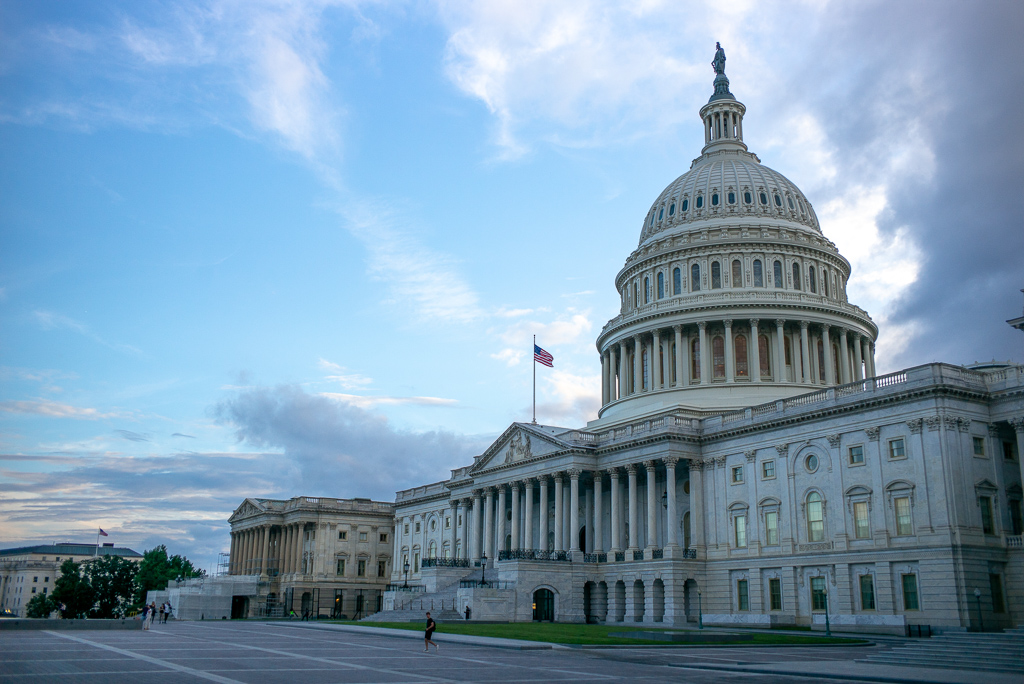Michael Cohen at the House Oversight Committee: Prepare for Procedural Disaster
Do you like watching the clerk of a congressional committee call the roll over and over again? Then you might want to tune in to Wednesday’s appearance by Michael Cohen before the House Committee on Oversight and Reform.

Published by The Lawfare Institute
in Cooperation With

Do you like watching the clerk of a congressional committee call the roll over and over again? Then you might want to tune in to Wednesday’s appearance by Michael Cohen before the House Committee on Oversight and Reform.
In the run-up to the hearing, both the committee’s chair, Rep. Elijah Cummings (D-Md.), and the ranking member, Rep. Jim Jordan (R-Ohio), have laid out some important markers as to what they’d each like Cohen to address in his testimony. On Feb. 20, the majority staff sent a memo to committee members outlining the scope of the panel’s hearing, which includes the following issues:
- the President’s debts and payments relating to efforts to influence the 2016 election;
- the President’s compliance with financial disclosure requirements;
- the President’s compliance with campaign finance laws;
- the President’s compliance with tax laws;
- the President’s potential and actual conflicts of interest;
- the President’s business practices;
- the Trump International Hotel in Washington, D.C.;
- the accuracy of the President’s public statements;
- potentially fraudulent or inappropriate practices by the Trump Foundation; and
- public efforts by the President and his attorney to intimidate Mr. Cohen or others not to testify.
The next day, Jordan issued a statement indicating that he was “disappointed and disheartened” with the plan for the hearing, specifically objecting to the fact that Cummings would be “limiting the topics of the hearing to only a few areas of inquiry—all serving his interest in finding grounds for impeachment.” As a result, Jordan indicated, “our Members intend to question Mr. Cohen about the crimes he pleaded guilty to, other criminal activity he participated in but refused to disclose, his international financial dealings, and a long list of other probative activities.”
At first blush, this all appears to be standard-issue posturing by members of different parties in Congress. But it may also serve as a preview for one strain of conflict that could be on display during the hearing: disagreements about the topics Republican members will be allowed to cover in their questioning. As the majority’s memo indicates, the list of allowable subjects was developed “[a]fter consulting with the Department of Justice and with Rep. Adam Schiff, the Chairman of the House Permanent Select Committee on Intelligence.” Other reporting suggests that includes both Special Counsel Robert Mueller and the U.S. Attorney’s Office for the Southern District of New York. One function of Cummings’s memo, then, is to ensure the committee’s work does not interfere with other ongoing investigations. Indeed, a subsequent memo sent to committee Democrats and reports of discussions among the panel’s majority party members suggest that respecting the investigative work of others is important to Cummings.
But it may also serve a second purpose. Jordan’s statement in response suggests that GOP representatives may seek to undermine Cohen as a credible source of information on the issues that Democrats hope to explore (or otherwise take the opportunity to embarrass the witness). Cummings’s scoping list, therefore, may also represent an effort to limit his Republican colleagues’ ability to do so.
If Republicans do choose to push the envelope in their questioning, procedural conflict may result. House Rule XVII(1)(b) requires that members speaking on the floor “shall be confined to the question under debate,” and as the Congressional Research Service notes, “this rule is generally applicable to debate in committee.” Some committees, however, also have their own rules that make this requirement explicitly applicable to hearings—and the House oversight committee is one of them. Committee rule 9(a) states that “all questions put to witnesses before the Committee or a subcommittee shall be relevant to the subject matter before the Committee or subcommittee for consideration, and the presiding member shall rule on the relevance of any question put to a witness.” Should Republicans attempt to pursue questions outside the scope of Cummings’s list, then, Democrats may object, leaving the chair to determine whether a question is relevant. If Republicans appeal that ruling, Democrats can move to table the appeal, which would likely be followed by a roll call vote.
We saw a preview of how this conflict might play out during the recent House Committee on the Judiciary hearing with then-Acting Attorney General Matt Whitaker. When Rep. Karen Bass (D-Calif.) attempted to ask Whitaker about his previous employment as the executive director of the Foundation for Accountability and Civic Trust, Rep. Doug Collins (R-Ga.), the ranking member, objected to that line of questioning, which was followed by a ruling from Chair Jerry Nadler (D-N.Y.), an appeal from Collins, a motion to table the appeal from Rep. Jamie Raskin (D-Md.) and a roll call vote. (Earlier in the same hearing, Collins also attempted to slow down the process by moving to adjourn the hearing under Rule XVI(4)(a)(1); the Cohen hearing may feature similar efforts by the oversight committee’s Republicans.)
If Cummings decides to try to intervene and limit Republicans’ questions during the hearing, it will be interesting to see what justification he uses—whether simply pointing to House rules on scope or jurisdiction, or else explicitly seeking to protect other investigative inquiries. Because Democrats have a majority on the committee, they will have the ability to sustain Cummings’s rulings on these questions—but will have to keep enough members in the hearing room to do so. In addition, repeated roll call votes—if it comes to that—have the potential to frustrate members as part of what’s already likely to be a long and contentious session. It’s also possible, of course, that Cummings will simply let Republicans proceed with their lines of questioning so that Democrats cannot be painted as seeking to suppress Republican inquiries. When Republicans objected that questions being asked of Whitaker in the judiciary committee session were outside the scope of the hearing, they were seeking to prevent him from having to answer certain questions. Democrats don’t necessarily have the same desire to protect Cohen, though they do have an incentive to protect the integrity of other ongoing investigations as well as to minimize the degree to which Republicans undermine Cohen’s credibility. But if the parties want to go down the path of procedural hardball, the pieces are in place for them to do so.





